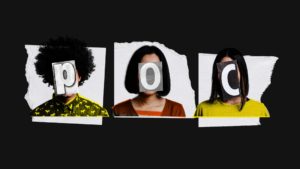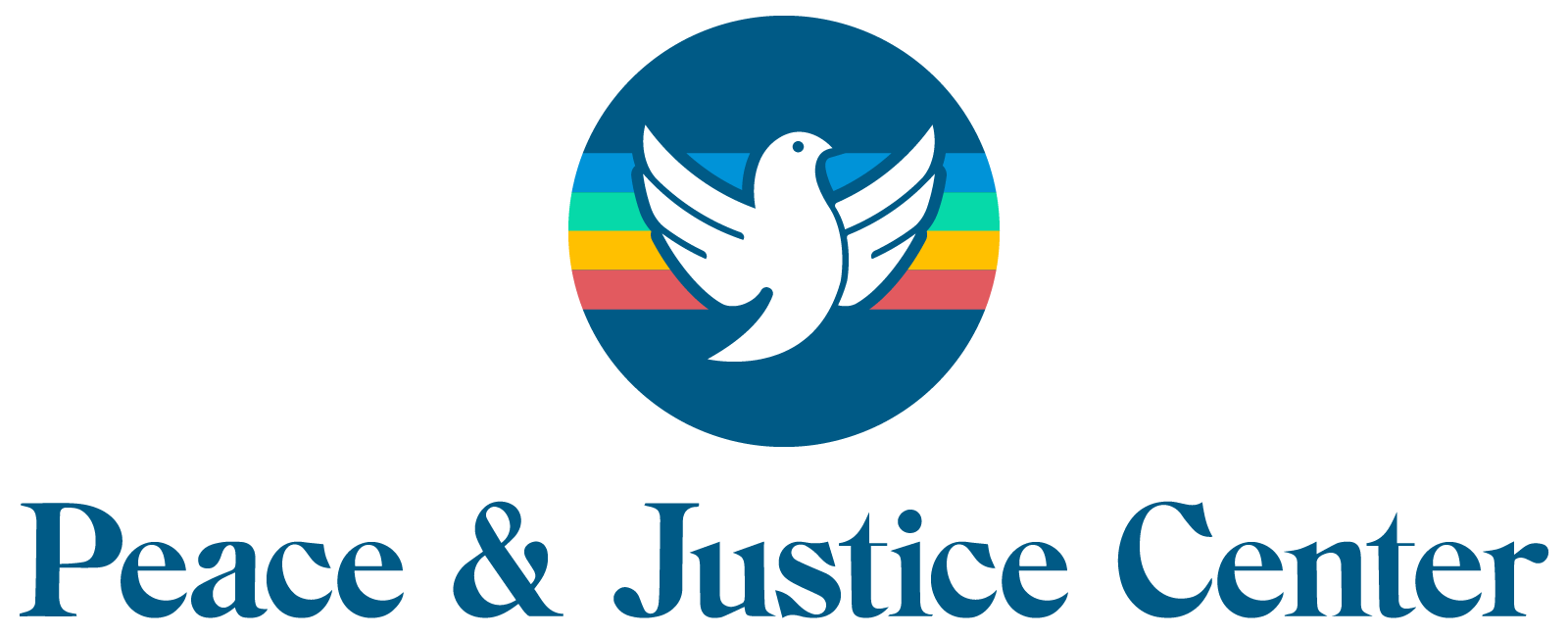-Kina Thorpe, PJC Educational Program Manager

The beautiful thing about language is that it is constantly evolving. Sometimes it is hard to keep track of what words are “in” and what words are “out”. Especially in the world of social justice, we are always creating new terms to be more precise. An example of this is the current switch from using POC (people of color) to BIPOC (Black, Indigenous, people of color). This change highlights how Black and Indigenous communities have their own unique experiences with racism in the U.S. that differ from those of other non-white communities (slavery, genocide, etc.). While I am still personally trying to figure out what term feels right to me, one thing is abundantly clear about the need for the term BIPOC: specificity when discussing racism is a must.
Too often, the term POC (as will likely happen with BIPOC) is used as a replacement for naming a specific race. It is a catch-all phrase for non-white people and can be important in certain contexts, but the way racism has been inflicted on people is not a catch-all. When you are talking about issues that Black people face, you need to say Black. If you are talking about issues that Latinx people face, you need to say Latinx. It does not matter what the group is, if you are talking about us you need to name us. In certain circumstances, it is appropriate to say POC or BIPOC. For instance, if you are discussing how white people hold more racial power than non-white people in the U.S., it makes sense to use one of those terms. You are not speaking about a problem that is unique to the experience of only one or two races.
But that is not always the case. For example, when discussing who is most affected by maternal mortality, it would be inappropriate to use POC. This is an issue that impacts black womxn at a higher rate than all other groups and is directly tied to a long history of black people being seen as less sensitive to pain, and black womxn in general not being believed by our doctors. Latinx womxn face many issues, including having one of the biggest pay gaps, but in this case, they have the lowest maternal death rate, even lower than white womxn. To say that womxn of color have the highest mortality rate would be not only inaccurate but would, once again, minimize the harm to the black community.
What is the problem with lumping everyone together? It does not recognize the unique challenges that each group faces. POC are not a monolith. Yes, we all experience racism and white supremacist oppression, but we do not feel it the same. For instance, the emasculation of Asian men in American society stems from horrific policies like the 1882 Chinese Exclusion Act. Those who were already here faced racism, and from that racism emerged the stereotype of them being feminine because of how they looked. These negative attitudes persist today with Asian men (and black womxn) being the “least desired” group according to recent studies about dating preferences. A blanket statement that men of color are emasculated in our society would be untrue. On the flip side, white people stereotyped Black people as hypersexualized and dangerous during slavery as a means for control (of them and other white people). This trend also continues today. While the root cause of both stereotypes is racism and the need for control, the outcomes for these groups are different, and the ways that they are viewed and treated is as well.
You may think “it is just words, so how much could it matter?” Well, words inform beliefs and beliefs inform actions. To get rid of these oppressions, you must come up with appropriate solutions. The solution for changing public opinion about the “desirability” of Asian men and for showing that Black people are not “oversexed threats” will not be the same.
If you are not specific in discussing the ways that different races experience the world, you will not be specific in fixing oppressive systems. You risk wasting your work by spending time and resources on people who do not face that problem, and at the same time, you will limit the number of impacted people you can work with. You will continue to leave behind already marginalized people.
The use of POC or BIPOC in some situations silence people and their issues. While this is something that all people (not just white people) need to stop doing, it does serve as a tool that helps white people feel less guilty about the extent of and calculated nature of racism. The oppression we face is intentional and targeted, so the solutions need to be too.
